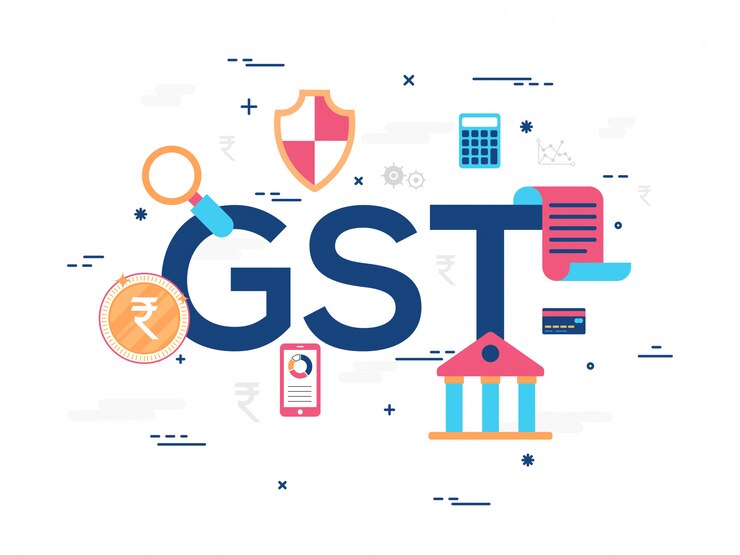SGST ACT
The State Goods and Services Tax (SGST) Act is a significant legislative component of India’s Goods and Services Tax (GST) system. It is specifically tailored to the individual states and union territories of the country, working in conjunction with the Central Goods and Services Tax (CGST) Act.

Customer Rating
4.9
Get Expert Consultation
What is SGST Act
The State Goods and Services Tax (SGST) Act is a significant legislative component of India’s Goods and Services Tax (GST) system. It is specifically tailored to the individual states and union territories of the country, working in conjunction with the Central Goods and Services Tax (CGST) Act. The SGST Act outlines the legal framework for the imposition, collection, and management of the state-specific component of the GST.

What Are The Features SGST Act
The State Goods and Services Tax (SGST) Act, part of India’s Goods and Services Tax (GST) system, outlines the legal framework for the imposition and collection of state-specific GST. While the act’s features may vary slightly from one state or union territory to another, here are some common features of the SGST Act:
State-Level Taxation
The SGST Act empowers each state and union territory in India to independently levy and collect the SGST on intra-state supplies of goods and services.
Replacement Of State Taxes
The SGST Act replaces various state-level taxes, including Value Added Tax (VAT), Sales Tax, Entertainment Tax, and others, creating a uniform and consistent tax structure across the country.
Revenue Collection For States
The revenue generated through SGST primarily goes to the respective state or union territory where the supply originates. This allows states to maintain fiscal autonomy and finance their budgetary requirements.
Registration Requirements
The SGST Act defines the criteria and procedures for businesses and individuals to register for SGST within a specific state or union territory. Registration thresholds may differ among regions.
Compliance And Reporting
Taxpayers are required to comply with the provisions of the SGST Act, including the timely filing of GST returns for intra-state transactions and the payment of SGST within specified deadlines.
Exemptions And Special Provisions
States have the flexibility to introduce specific exemptions, threshold limits, and unique schemes under the SGST Act to address local requirements and economic conditions.
Who Collect SGST In India
In India, the State Goods and Services Tax (SGST) is collected and administered by the tax authorities of each individual state and union territory. The SGST is part of the Goods and Services Tax (GST) system, which is a dual GST system in India, consisting of both central and state components. Here’s how the collection of SGST works:
State-Specific Collection: Each state and union territory in India has its own SGST Act, which empowers them to levy and collect SGST on intra-state supplies of goods and services. This means that the revenue collected through SGST primarily benefits the specific state or union territory where the supply occurs.
State Tax Authorities: The tax authorities of each state or union territory are responsible for administering and enforcing the SGST provisions within their respective jurisdictions. These state tax authorities include departments such as the State Goods and Services Tax Department.
Registration and Compliance: Businesses and individuals engaged in taxable supplies within a particular state or union territory are required to register for SGST with the respective state tax authority. They must comply with the SGST Act, which includes filing GST returns and paying SGST within specified timelines.
Input Tax Credit (ITC): Registered taxpayers can claim Input Tax Credit (ITC) for SGST paid on their purchases. This ITC can be used to offset the SGST they collect on their sales, effectively reducing the tax liability.
Revenue Sharing: While SGST revenue remains with the state where it is collected, the central government also collects the Central Goods and Services Tax (CGST) on the same transaction. The revenue collected through CGST is distributed between the central and state governments as per the recommendations of the GST Council, which is a body consisting of representatives from both the central and state governments.
Interstate Transactions: It’s important to note that SGST is applicable to intra-state transactions, meaning transactions that occur within a specific state or union territory. For inter-state transactions (transactions between different states or union territories), the Integrated Goods and Services Tax (IGST) is collected by the central government, and the revenue is distributed accordingly.
Frequently Asked Questions
If you are still thinking about opting for GSTBOY.COM for your loved ones, you can always check out the common queries about our service and support.
The State Goods and Services Tax (SGST) Act is a crucial component of India’s Goods and Services Tax (GST) system. It governs the taxation of the supply of goods and services within a single state or union territory. SGST is levied by the respective state government and works in conjunction with the Central Goods and Services Tax (CGST) or the Union Territory Goods and Services Tax (UTGST), depending on the location of the supply.
The SGST tax is levied by the state government on the supply of goods and services within its jurisdiction. The rates are determined by the GST Council, and the revenue collected through SGST is retained by the respective state or union territory.
SGST is calculated as a percentage of the transaction value. The rate is determined by the GST Council, and it is uniform within each state or union territory to ensure consistency in the taxation system.
The seller is responsible for collecting SGST from the buyer on the supply of goods and services within the state or union territory. The collected SGST is then deposited with the respective state government.
Our services in Direct tax are as under:
- PAN/TAN Registration.
- Income tax return filling.
- Income tax computation/payments/refunds.
- Representation before the Income tax authorities for completion of assessment, reassessment, etc.
- Tax Audits
- Consultancy on various Income tax issues.
- Effective tax management, tax structuring and advisory services.
- Tax Planning for Corporates and others.
